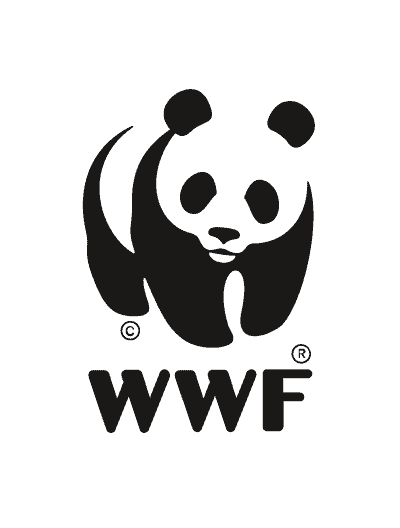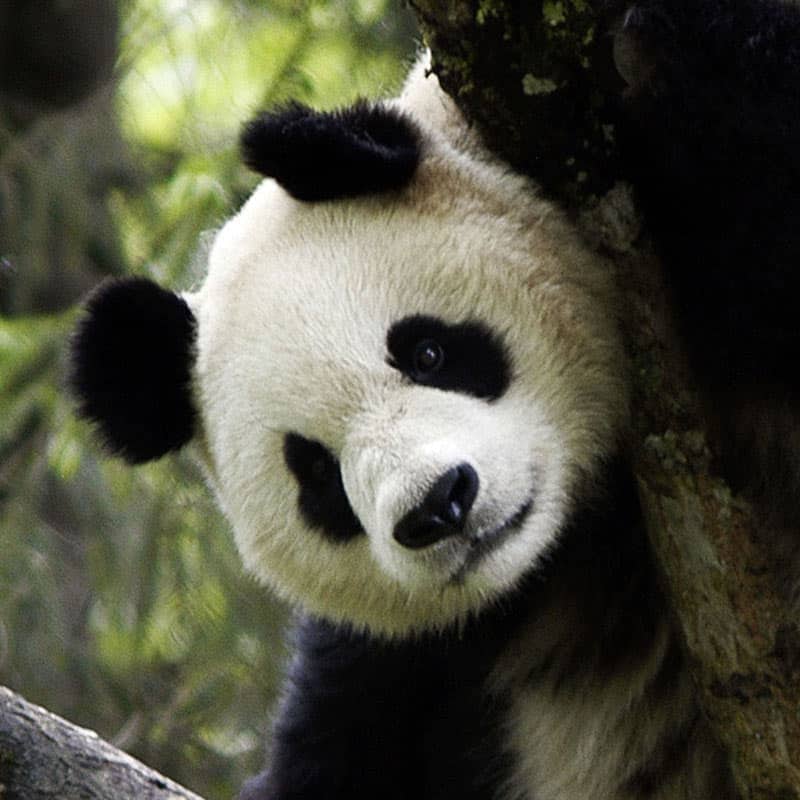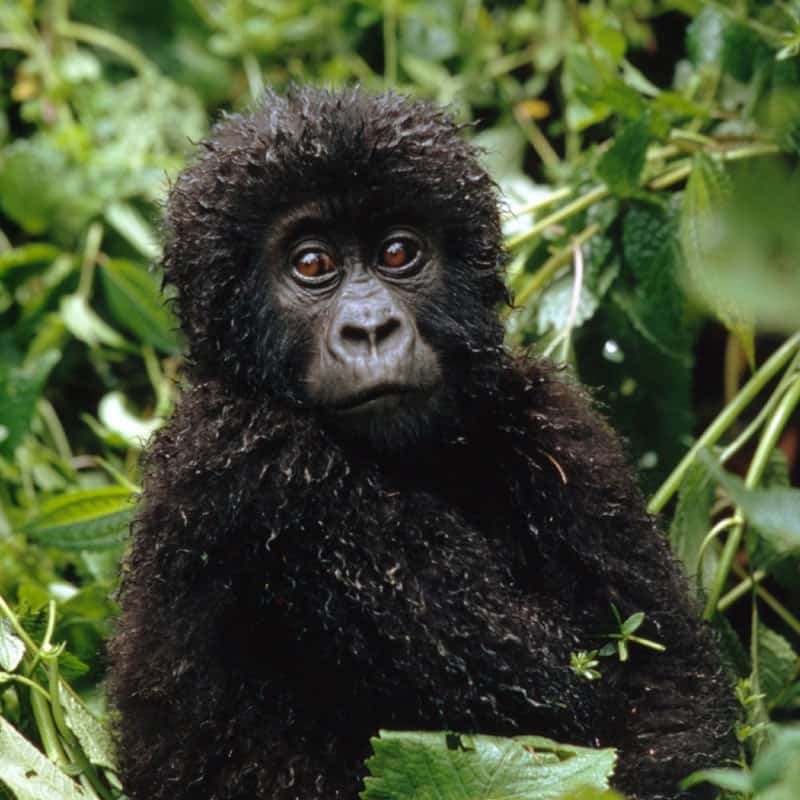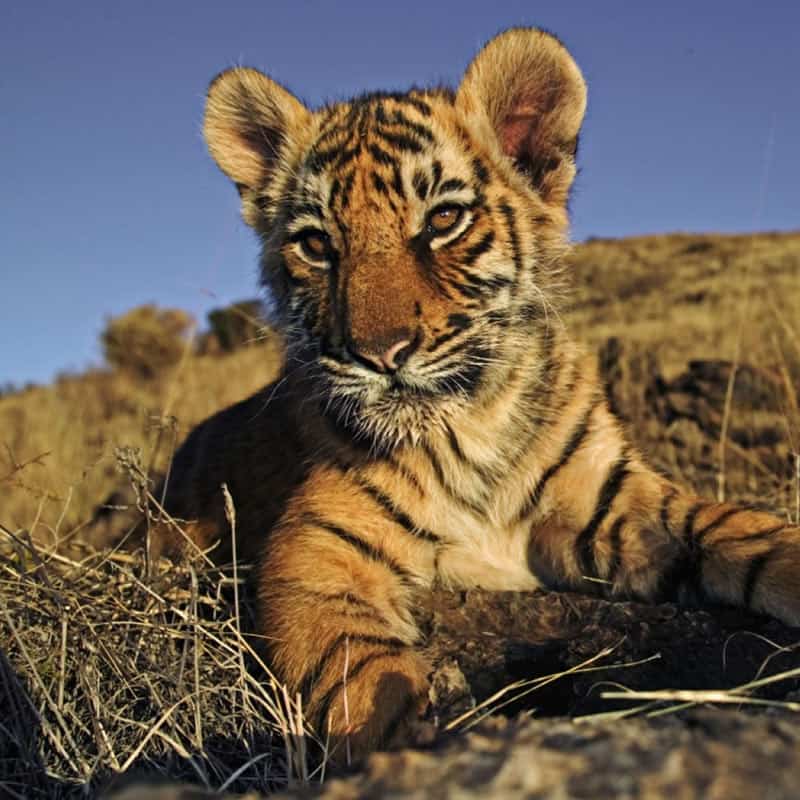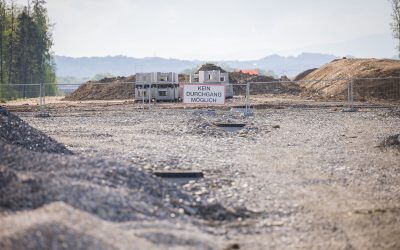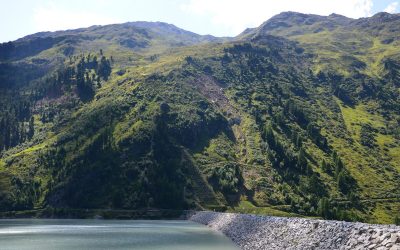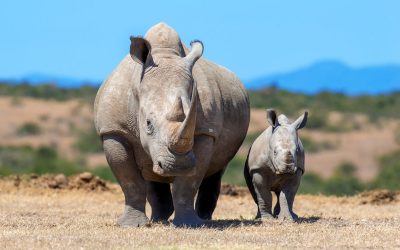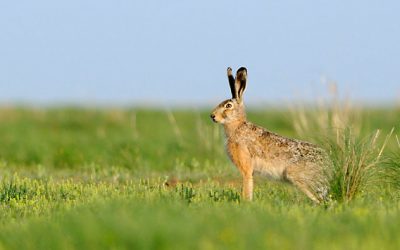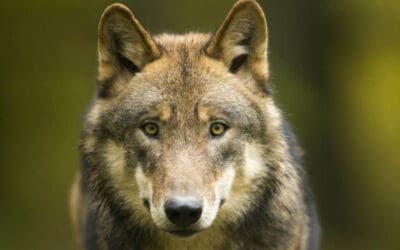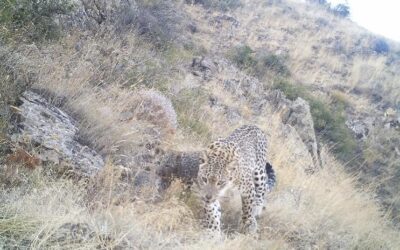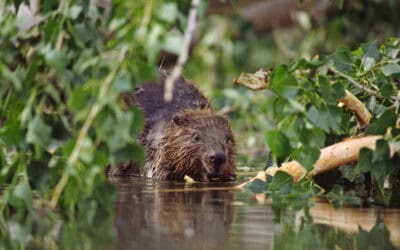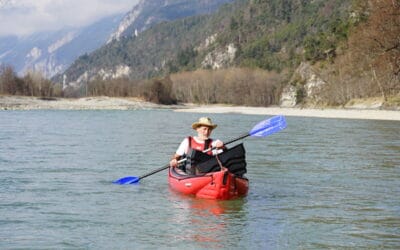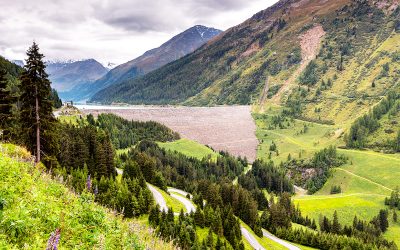Rechnungshof-Bericht fordert mehr Verbindlichkeit beim Bodenschutz – WWF sieht sich in Forderungen bestätigt und kritisiert “zahnlose Bodenpolitik”
Über 230 Seeadler und 100.000 Wasservögel an den Auen von Mur, Drau und Donau gezählt
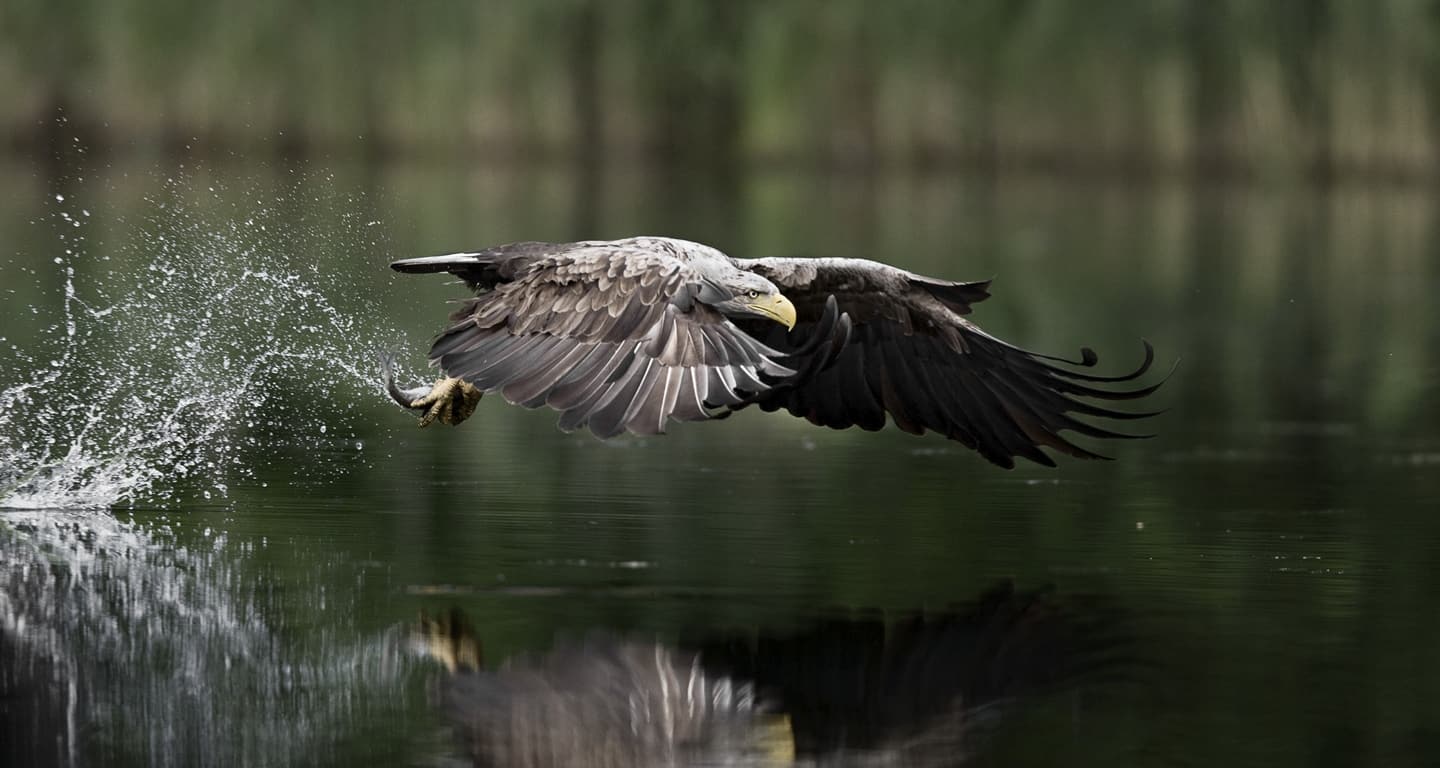
Wien, Zagreb, Budapest, Belgrad, 31. Januar 2014 – Mitte Januar schritten freiwillige Vogelkundler von NGOs aus Slowenien, Kroatien, Ungarn, Serbien und Österreich über 3.000 Flusskilometer ab, um überwinternde Seeadler und Wasservögel zu zählen. Sie waren entlang der Donau, sowie der Unterläufe von Drau und Mur unterwegs – im Rahmen der ersten grenzübergreifend durchgeführten Seeadler-Zählung der Donauländer und der traditionellen Winter-Wasservogelzählung. Das Ergebnis ist besonders für die Länder des künftigen UNESCO-Biosphärenreservats Mur-Drau-Donau (Ungarn, Kroatien, Serbien, Slowenien und Österreich) erfreulich: 100.000 Wasservögel, wie Gänsesäger, Kormorane, Graugänse und Silberreiher wurden gesichtet – darunter auch 230 Seeadler, besonders majestätische Vertreter der Vogelwelt. Diese größten Greifvögel im Donauraum sind Symbol für die Naturschätze der Flüsse und Auen am so genannten "Amazonas Europas". Ihr bedeutendstes Vorkommen liegt im Dreiländereck Ungarn, Kroatien und Serbien, wo drei Schutzgebiete über 200 Adlern Lebensraum bieten.
Mehr Infos:
International Winter Census: “Amazon of Europe” hosts highest density of White-tailed Eagles in the Danube region
Over 230 White-tailed Eagles and 100.000 other waterbirds counted in the floodplains of Mura, Drava and Danube
Osijek, Zagreb, Budapest, Vienna, Belgrade, January 31st, 2014 – Mid January, voluntary counters of a dozen NGOs from Slovenia, Croatia, Hungary, Serbia and Austria were monitoring 3.000 river kilometres along the Danube, as well as along the lower stretches of the Drava and Mura rivers. The bird watchers were taking part in the traditional international mid-winter waterfowl count coordinated by Wetlands International, as well as in the first synchronous Danube-wide White-tailed Eagle winter census. The result is pleasant: in the countries of the future pentalateral Biosphere Reserve “Mura-Drava-Danube”, a total of 100.000 waterbirds, such as Goosanders, Great Cormorants, Greylag and White-fronted geese or Great Egrets were spotted. Amongst them are 230 individuals of White-tailed Eagles, majestic birds that are symbol for the natural treasures of the rivers and floodplains in the so-called “Amazon of Europe”.
The highest density of White-tailed Eagles was – once more – found in the border region of Hungary, Croatia, and Serbia that forms the center of the Biosphere Reserve: over 200 individuals were observed in the Duna-Dráva National Park (Hungary), the Kopački rit Nature Park (Croatia), and the Gornje Podunavlje Special Nature Reserve (Serbia). “That proves the perfect suitability of these wetlands that are not only a top breeding habitat for the eagles but also a hot spot for the wintering large raptors”, stresses Tibor Mikuska from the Croatian Society for Bird and Nature Protection.
Lower Danube, Drava and Mura rivers: Hot spot of rare habitats and species
“The recent waterbird count clearly highlights those areas to be under international conservation focus timely on 2nd of February, when the RAMSAR-Convention is celebrating the international world wetlands day”, says Arno Mohl, international freshwater expert at WWF Austria. “The impressing data will serve as an important argument for the stronger protection of the rivers that are still threatened by current destructive infrastructural projects such as the planned regulation of the Croatian-Serbian Danube stretch in the heart of the Biosphere Reserve”, he adds.
White-tailed Eagles require big and connected floodplain areas with old trees to breed and with enough prey – mainly fish, waterbird and mammals – to feed. Large protected areas play a key role in their preservation and well-being because there is a low level of disturbance by human activities. Therefore, cross-border conservation efforts are of vital importance for the population of these eagles and many other threatened birds that use the rivers and their intact floodplains to breed, rest and feed. A better knowledge on the best wintering areas helps to empower the conservation efforts.
The Amazon of Europe is growing
Following the Croatian-Hungarian UNESCO designation of 630.0000 ha in 2012, Serbia nominated its 177.000 hectares Danube area to the puzzle of the future 5-country Biosphere Reserve “Mura-Drava-Danube” at UNESCO’s Man and Biosphere Programme in Paris last September. After its final designation of UNESCO, which is expected in June 2014, Austria and Slovenia would need to add their portions of the “Amazon of Europe” and lift it to the final Five –Country Transboundary Biosphere Reserve.
Further information on the Biosphere project see: www.amazon-of-europe.com
Contact:
Claudia Mohl, Press Officer WWF Austria , tel. +43 1 488 17-250, E-mail: claudia.mohl@wwf.at
Rückfragen
News
Aktuelle Beiträge
Naturgefahren: WWF fordert Sicherheitsprüfung für Kraftwerk Kaunertal
Österreichische Staubeckenkommission soll Ausbauprojekt auf aktuelles Risiko für Naturgefahren überprüfen – Bisheriges Gutachten veraltet und lückenhaft
WWF-Erfolg: Weniger gewilderte Nashörner in Südafrika
Neue Zahlen aus Südafrika machen Hoffnung für den Nashorn-Schutz: Im Naturreservat Hluhluwe-iMfolozi ging die Wilderei um fast 70% zurück. Grund dafür war eine Enthornungs-Aktion – ein drastischer Schritt für den Schutz der Tiere, der aber leider kein Allheilmittel ist.
VCÖ und WWF: Mehr als 17.000 Hasen pro Jahr Opfer des Straßenverkehrs
Zersiedelung und Straßenbau zerstören den Lebensraum von Hasen und anderen Wildtieren – VCÖ und WWF fordern Reduktion des Bodenverbrauchs und ein Ende der Zersiedelung
Schutzstatus Wolf: WWF kritisiert “Feldzug gegen den Artenschutz”
EU-Botschafter:innen stimmen für die Abschwächung des Wolf-Schutzstatus – Naturschutzorganisation fordert Rückkehr zu wissenschaftlich gedeckten Lösungen
WWF-Erfolg: Kleiner Leopard in Armenien geboren
Persische Leoparden sind extrem selten. Umso erfreulicher: Erstmals wurde in Armenien die Geburt eines Leoparden offiziell registriert. Ein Erfolg, der auf jahrzehntelangen Schutzbemühungen basiert.
Neuer WWF-Bericht: Biber als Schlüsselart in Klima- und Biodiversitätskrise
Welt-Bibertag: Heimischer Nager bringt hohen Nutzen für Biodiversität und Anpassung an Extremwetter – WWF fordert mehr Raum für tierischen Bauingenieur
Wiederansiedlung: WWF stärkt den Artenschutz am Inn
Hilfsmaßnahmen für gefährdete Arten am Inn – INNsieme connect siedelt Zwergrohrkolben in den Mieminger und Rietzer Innauen an und schafft Laichplätze für seltene Gelbbauchunke
WWF kritisiert Kaunertal-Einreichung als “fahrlässig und verantwortungslos”
Tiwag will Ausbau Kraftwerk Kaunertal trotz zahlreicher Risiken und Naturgefahren durchboxen – WWF fordert Stopp und verweist auf Alternativen für naturverträgliche Energiewende

